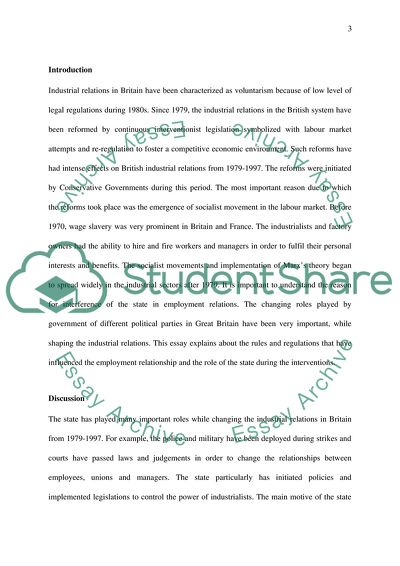Cite this document
(Role of the State in British Industrial Relations Since 1980 Essay Example | Topics and Well Written Essays - 2000 words, n.d.)
Role of the State in British Industrial Relations Since 1980 Essay Example | Topics and Well Written Essays - 2000 words. https://studentshare.org/politics/1843830-critical-evaluation-of-the-role-of-the-state-in-british-industrial-relations-since-the-1980s
Role of the State in British Industrial Relations Since 1980 Essay Example | Topics and Well Written Essays - 2000 words. https://studentshare.org/politics/1843830-critical-evaluation-of-the-role-of-the-state-in-british-industrial-relations-since-the-1980s
(Role of the State in British Industrial Relations Since 1980 Essay Example | Topics and Well Written Essays - 2000 Words)
Role of the State in British Industrial Relations Since 1980 Essay Example | Topics and Well Written Essays - 2000 Words. https://studentshare.org/politics/1843830-critical-evaluation-of-the-role-of-the-state-in-british-industrial-relations-since-the-1980s.
Role of the State in British Industrial Relations Since 1980 Essay Example | Topics and Well Written Essays - 2000 Words. https://studentshare.org/politics/1843830-critical-evaluation-of-the-role-of-the-state-in-british-industrial-relations-since-the-1980s.
“Role of the State in British Industrial Relations Since 1980 Essay Example | Topics and Well Written Essays - 2000 Words”. https://studentshare.org/politics/1843830-critical-evaluation-of-the-role-of-the-state-in-british-industrial-relations-since-the-1980s.


